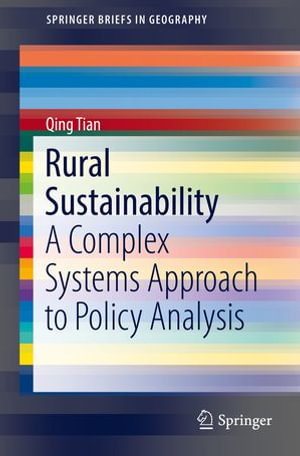
eTEXT
At a Glance
eText
$89.99
or
Instant online reading in your Booktopia eTextbook Library *
Read online on
Desktop
Tablet
Mobile
Not downloadable to your eReader or an app
Why choose an eTextbook?
Instant Access *
Purchase and read your book immediately
Read Aloud
Listen and follow along as Bookshelf reads to you
Study Tools
Built-in study tools like highlights and more
* eTextbooks are not downloadable to your eReader or an app and can be accessed via web browsers only. You must be connected to the internet and have no technical issues with your device or browser that could prevent the eTextbook from operating.
ISBN: 9783319526850
ISBN-10: 3319526855
Series: SpringerBriefs in Geography
Published: 22nd May 2017
Format: PDF
Language: English
Publisher: Springer Nature
You Can Find This eBook In
This product is categorised by
- Non-FictionEngineering & TechnologyEnvironmental Science
- Non-FictionEarth Sciences, Geography, Environment, PlanningThe EnvironmentSustainability
- Non-FictionEarth Sciences, Geography, Environment, PlanningThe EnvironmentNatural Disasters
- Non-FictionReference, Information & Interdisciplinary SubjectsResearch & InformationInformation theoryCybernetics & Systems Theory
- Non-FictionEarth Sciences, Geography, Environment, PlanningGeographyHuman GeographyEconomic Geography
- Non-FictionReference, Information & Interdisciplinary SubjectsInterdisciplinary StudiesDevelopment Studies
- Non-FictionSociology & AnthropologySociologySocial Research & Statistics
- Non-FictionSociety & CultureSocial Groups
- Non-FictionPolitics & GovernmentInternational Relations
- Non-FictionLibrary & Info SciencesLibrary & Information Services
























